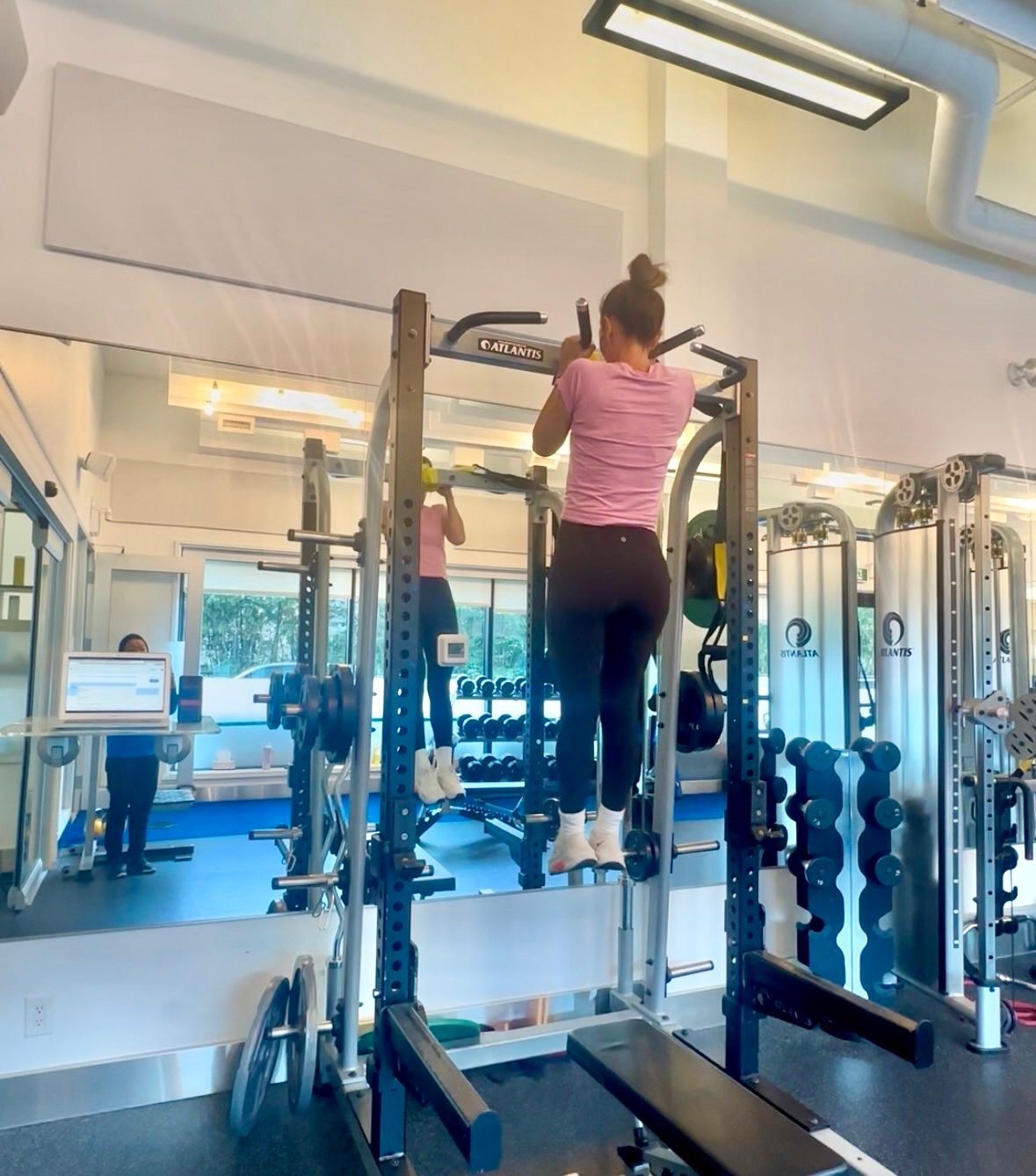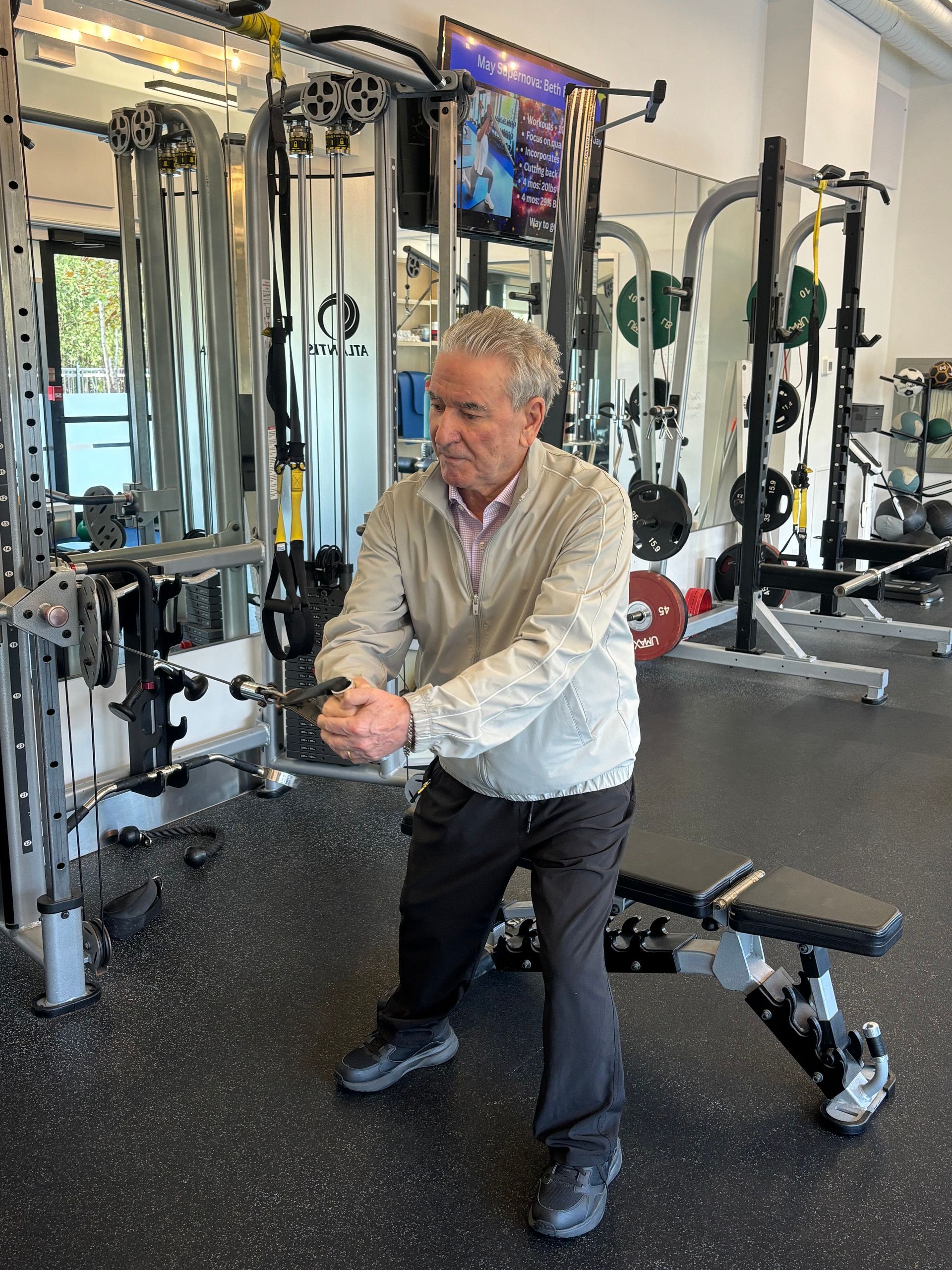Strategies for Managing Stress
Sometimes our lives are in a place where the stress we experience is beyond our control. At these times, it is important to manage how we respond and recover from stress. Here is an outline of stress coping strategies that can help you get through times of high stress.
Develop & Practice Interoception
Interoception refers to the ability to perceive and understand the internal sensations and signals of the body. It involves being aware of and interpreting various bodily sensations such as hunger, thirst, heartbeat, breathing, temperature, pain, and emotional states. Interoception plays a crucial role in our self-awareness, as it provides us with information about our internal states and helps us make sense of our bodily needs and emotions.
Through interoception, we are able to recognize and respond to physiological cues from our body, which can influence our behavior, decision-making, and overall well-being. For example, interoception allows us to recognize when we are hungry and need to eat, when we are tired and require rest, or when we are experiencing stress or anxiety. It contributes to our ability to regulate our emotions, maintain homeostasis, and adapt to changing circumstances.
Interoception is closely linked to the brain's insular cortex, which integrates sensory information from the body and helps generate subjective feelings and bodily awareness. It is an ongoing process of sensing, interpreting, and responding to internal bodily sensations, and its significance extends to various aspects of our physical and mental health.
Set Boundaries
One of the major sources of stress in our lives as humans is our struggle to utter the word "no." Although we have certain obligations in our daily routines, failing to say no frequently enough and overextending ourselves can impose unnecessary strain on our bodies and minds.
While it may pose challenges, it is crucial to acknowledge that it is acceptable to decline requests or invitations at times. Despite the inclination to automatically say yes to any demand, it is vital to prioritize your own well-being. Remember that if you exhaust yourself by taking on too much, you won't be able to effectively meet your existing commitments, which will only add more stress to your life.
Declutter or Delete
Decluttering encompasses the process of eliminating objects, tasks, stimuli, or even individuals from our lives that occupy unnecessary space and contribute to stress. Often, we are unaware of the impact these things have on us. Take, for instance, the multitude of unused apps on our phones, which needlessly occupy mental and physical space.
Pausing to assess our automated routines and identify distractions or non-essential elements is crucial for clear thinking, productivity, and stress reduction. If something is not essential or actively being utilized, it is beneficial to delete or remove it from our lives. This deliberate act of decluttering allows us to prioritize what truly matters and create an environment conducive to peace and focus.
Acknowledge Seasons of Growth
In life, there are periods when we face numerous stressors that are beyond our control. During these times, it is important to accept the situation, give our best efforts, and practice patience. These seasons often involve busyness and are temporary in nature. They might occur when starting a new job or taking on a demanding project that aligns with our goals. Recognizing that these seasons serve as opportunities for personal growth and improvement is crucial. Although they can be challenging and induce stress, the ultimate outcome should bring a sense of fulfillment towards our objectives.
However, it is essential to ensure that we do not remain in a perpetual state of high pressure, as this constant stress can lead to even more stress. There are seasons in life that require us to push ourselves, but it is equally important to recognize and embrace seasons of relaxation. Striking a balance between exertion and rest is vital for overall well-being and sustained success.
Adapt a Healthy Lifestyle
Everything we consume (food, drink, literature, media, thoughts etc) has an impact on our well-being. When we introduce substances into our bodies that are detrimental, such as unhealthy food, alcohol, drugs, and so on, it places stress on both our bodies and brains as they work to process and cope with these substances. Similarly, not getting sufficient rest or exercise can also contribute to this stress.
One effective and straightforward approach to reduce stress in your life is to prioritize self-care and tune in to your body's needs. It's essential to nourish yourself with nutritious food, get an ample amount of rest, engage in regular exercise and practice mindset training to rid yourself of negative thoughts. Additionally, when you're feeling unwell or off, it's important not to disregard those signals. By maintaining a healthy body and brain, you empower yourself to better combat the everyday stressors.
Nutrition for Stress
- Hydration
- For cells to effectively repair, maintain balance (homeostasis), and generate energy, water is essential. It's important to keep in mind that substances like alcohol and caffeine act as diuretics, increasing fluid loss from the body. Consequently, it becomes necessary to replenish the lost fluids by consuming additional water.
- Eating enough calories.
- Skipping meals and eating low calorie is perceived as stress by the body. (Think of times of famine)
- Eating protein with every meal.
- This helps to balance blood sugar and provide amino acids for neurotransmitters (mood)which combats stress.
- Eating enough of the right complex carbohydrates.
- Carbohydrates provide energy. In times of stress, our body requires more of this. Eating low carb = low calorie which leads to stress on the body. In addition, carbs help increase serotonin neurotransmitter which can help us feel better and decrease anxiety.
- Eliminate/Minimize Inflammatory Foods & Alcohol
- These foods and alcohol cause more stress on the body. More stress uses up more resources and depletes energy and capacity to tolerate other more important stressors in your life.
- Foods
- Leafy green vegetables- high in iron, magnesium
- Whole grains- high in magnesium, B-vitamins
- Nuts- high in magnesium, zinc
- Citrus- high in vitamin C, needed to absorb iron
- Dark chocolate (70% cacao or more)- high in iron, magnesium
- Lean red meat- high in magnesium, B-vitamins, iron, zinc
- Fish - high in omega 3’s to support the brain which in turn affects our mood and focus.
- Supplements
- Foundational Supplements
- Vitamin D
- Magnesium.
- Vitamin C
- Zinc
- Fish Oil
- Situational Supplements
- N-Acetyl Cysteine (antioxidant)
- Plant derived Adaptogens (ashwagandha, ginseng, rhodiola)
- Melatonin
- Herbal teas for sleep, stress, digestion, nervous support
- L-theanine
- Phosphatidylserine
Lifestyle for Stress
- Daily Sunshine - Vitamin D
- First thing in the morning get natural light (without sunglasses) before 9am. Just 5-10 min is enough.
- Fresh Air
- Also allows us to be outdoors in natural light. Fresh air can help raise oxygen levels in your brain, which increases serotonin levels.
- Exercise
- Engaging in physical movement is crucial for our well-being. It not only enhances our mood but also diverts our attention from stressors. However, it's important to consider the intensity of exercise while combating stress. Exercise, particularly when strenuous, acts as a stressor on the body. It triggers the activation of the nervous system's fight-or-flight response, breaks down tissue, and mobilizes energy.
- If other aspects of your life are already experiencing significant stress, it's advisable to avoid intense exercise, as it may exacerbate the situation. Intense exercise is best suited for individuals who dedicate time to practice recovery and effectively manage their stress, ensuring that exercise stress becomes a positive, beneficial eustress rather than a distressing factor.
- Sleep
- Receiving less than seven hours of sleep per night places strain on the body and hinders complete recovery. Consequently, the following day, when we should ideally have a replenished reserve of energy and resilience to cope with stress, we find ourselves with diminished capacity.
- Ensuring that we are asleep by 10:30 pm is vital, not only to increase the likelihood of obtaining a minimum of seven hours of sleep but also because it is during this time that the secretion of growth hormone, a hormone crucial for growth and repair, is impaired. This impairment leads to additional stress on the body as it fails to adequately heal from the demands of the previous day.
- By prioritizing sufficient sleep and establishing a consistent sleep routine, we provide our bodies with the necessary opportunity to recharge and recover. This, in turn, equips us to better navigate and manage stress, promoting overall well-being and optimal functioning.
- Mindset Training & Psychotherapy
- Engaging in practices like journaling, meditation, affirmations, and visualization can help foster a positive mindset, thereby reducing stress. However, deeper issues and traumas may hinder a positive mindset, requiring intervention. Seeking the guidance of a psychotherapist can be a beneficial step in addressing and overcoming these obstacles.
- Breathing
- An unhealthy breathing pattern not only leads to oxygen deprivation but can also exacerbate physical and mental stress. The initial step towards improvement lies in cultivating awareness of your breath. Once you become conscious of your breathing, shift your focus towards controlled inhalation and exhalation. Avoid forcing the breath, as this can activate the sympathetic nervous system. Instead, concentrate on calm belly (diaphragmatic) breathing, allowing your abdomen to expand during inhalation and contract during exhalation.
- Floatation Therapy & Mineral Baths
- Floatation therapy and mineral baths can reduce stress by calming the nervous system and inducing a parasympathetic state which promotes relaxation, allowing the body and mind to enter a state of rest and rejuvenation..
- Additionally, both therapies have been found to regulate stress hormones, such as cortisol, promoting a sense of calmness and improved mood.
- Vacation
- Taking time away is sometimes all we need to do. It is important to take breaks to enjoy the other marvels of the world which bring a sense of joy. If vacation does not fill you up, it is important to take a closer look at your life and consider some more serious changes that need to be made.
- Hobbies and Do What you Love
- It's crucial to prioritize activities that bring us joy and fulfillment. Whether it's reading, spending time at the beach, or fishing, it's essential to carve out dedicated time for these pursuits on a weekly basis. Make it a non-negotiable part of your schedule, ensuring that you prioritize and commit to engaging in activities that bring you happiness.
- Spend time with Those You Care About
- Recognizing the significance of socialization is crucial, as we humans are innately social beings. Denying ourselves enriching social interactions can have detrimental effects on both our mental and physical well-being, leading to heightened stress levels.
Making lifestyle changes without support can sometimes be challenging and stressful in itself. If you are in a place of stress, would like some support and accountability contact us about our health coaching services that offer expert coaching advice that help you where you need it the most.











